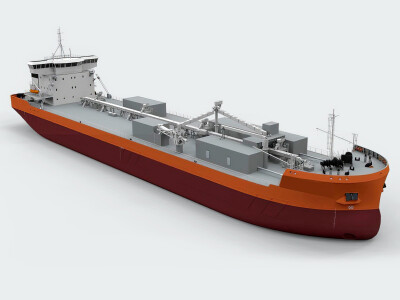In this depressed energy market, it’s tough to envision better times. But it will come.
Hornbeck Offshore Services reported a fourth-quarter net loss last week, and Todd M. Hornbeck, the company’s chief executive officer, admitted that there was “no way to sugarcoat this.” He said the combined effects from depressed drilling activity and vessel oversupply will make 2016, and quite possibly beyond, “very trying.”
However, the company is doing all it can to make sure it will be ready to pounce once business starts to improve. Hornbeck finished 2015 with $260 million in cash on hand, an increase of $75 million compared to the same period last year. This comes even after the company funded $170 million in capital expenditure growth for its newbuild program. Also, the company’s $300 million revolver has not been drawn upon.
The company is placing more attention on its MPSVs, which now include four Jones Act qualified vessels. Hornbeck said the MPSVs would be needed to meet demand from customers to inspect, prepare and maintain existing Gulf of Mexico subsea infrastructure as well as to finish projects. The company is committed to the Jones Act MPSV market, and announced $70 million in upgrades to the four remaining MPSVs under construction at two shipyards. After deliveries in 2016 and 2017, the vessels will be the largest and most capable Jones Act-qualified MPSVs on the market, Hornbeck said. Two of the vessels being expanded will be the first ever 400-class Jones Act MPSVs. The conversions of the vessels will extend the deliveries by two years into 2017.
Hornbeck said this serves two purposes. It will extend vessel deliveries out into 2017 “to where we think we’ll bridge to a better market.” Also, the company won’t be paying the yards a fee, thus “burning cash,” for simply extending contracts.
Hornbeck did not want to get too specific on whether he had a contract or contracts in hand for the upgraded MPSVs, but said, “It is positioning us for some opportunities and some work.”
You can hear more about what strategies OSV and rig operators are employing in the current market next week at our OSV Regional Summit in Houston. There’s still time to register.




